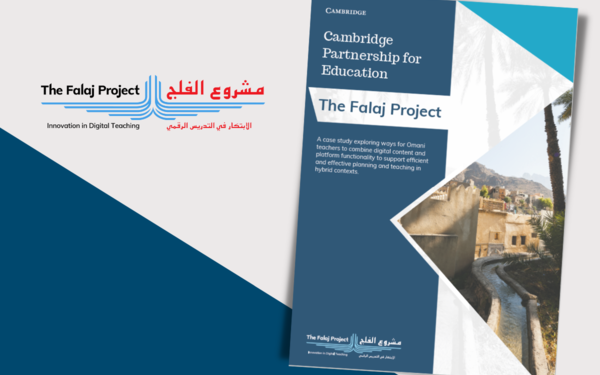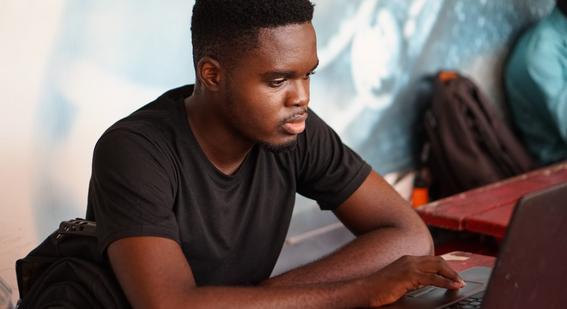The Falaj Project Report
As schools slowly reopen, the Falaj Report explores ways for Omani teachers to combine digital content and platform functionality to support efficient and effective planning and teaching in hybrid contexts.

The last 18 months has turned the world on its head and has effected every facet of life. One area which has been hit particularly hard has been education, as restrictions have left classrooms empty and schools closed. However, to combat this, technology has been utilised effectively to allow education to flourish even in the most difficult of times. Students have had to adapt to a new way of engaging with education and so too have teachers adapted to a new teaching platform and style. As schools slowly reopen, the Falaj Report explores ways for Omani teachers to combine digital content and platform functionality to support efficient and effective planning and teaching in hybrid contexts.
Since 2017, Oman has invested significantly in implementing the Cambridge Curriculum for Maths and Science using Cambridge resources. These educational reforms are key to implementing the Vision 2040 strategy by equipping Omani children with the knowledge, skills and values they need to succeed in the 21st century.
However, in order for this curriculum to translate into real benefits for Omani children, students need to experience student-centred Active Learning experiences. This means learning experiences where they "think hard", use inquiry to drive their own progress towards learning outcomes, and where teachers have the opportunity to assess continually what learners have understood and adapt their teaching accordingly.
Since schools moved online due to Covid-19, teachers have faced new challenges to embed this student-centred Active Learning approach. “There is currently a conflict between Cambridge Curriculum goals and remote learning” – Teacher Innovator, Falaj Project.
In 2020, the Omani Ministry of Education made a national adoption of Google Workspace for Education from Grade 5 onwards, giving many teachers access to a shared online space, collaboration tools and an ecosystem of innovative apps. Teachers also have digital versions of the Cambridge textbooks in PDF format. However, the design of these resources has not yet been optimized for use with Google Workspace.
The Falaj Project aimed to consider ways that teachers can continue to implement the Cambridge Curriculum in remote and hybrid contexts by combining Cambridge content with Google Workspace tools to create opportunities for student-centred Active Learning experiences. From March to June 2021, project collaborators conducted a series of live workshops, a research review, and specially developed prototype resources. A group of 10 teacher innovators was appointed by the Ministry to take part in the workshops, respond to surveys and to evaluate digital prototypes demonstrated by Cambridge and Google.
Key challenges facing Omani teachers
- Designing digital solutions that work for teachers with diverse needs
- Bridging gaps in infrastructure: devices, connectivity, skills
- Limitations with current digital content: functionality, digitization, access
- Absence of some simple digital content like videos and simulators
Key insights from Omani and international research
- Designing solutions for diverse teachers
- Digital content
- Professional development
Recommendations
- Take an iterative, user-centred approach to investment
- Digitise existing content
- Source basic new textbook-aligned content and tools
- Invest in sustained professional development programmes




